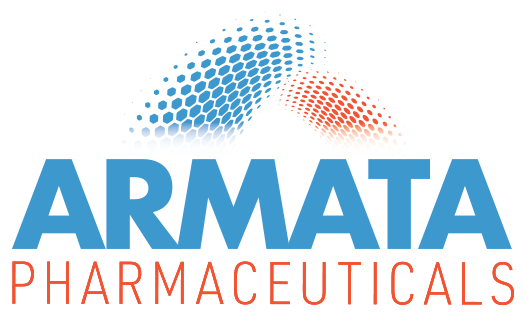Armata is committed to developing safe and effective medicines to transform the lives of patients with serious or life-threatening bacterial infections. Our goal is to provide access to our investigational drugs at the appropriate time and in the safest manner for patients. We are currently developing multiple products to combat multidrug-resistant bacterial infections. The route to marketing approval for investigational drugs requires conducting multiple clinical trials.
A clinical trial is a research program conducted with patients to evaluate an investigational new drug (IND) in which comprehensive safety and efficacy data are compiled. Armata believes that participation in one of our clinical trials is the most appropriate way to access our investigational drugs, consistent with U.S. Food and Drug Administration (FDA) recommendation: “Whenever possible, an investigational medical product should be used as part of a clinical trial.”
Expanded access, sometimes called compassionate use, refers to the use of an investigational new drug outside of a clinical trial for patients with serious or life-threatening conditions who have exhausted their treatment options and are not eligible for, or able to participate in, a clinical trial.
Treating physicians and patients should note that investigational drugs do not have established safety and efficacy and have not yet been approved by the FDA for their specific use(s), therefore it is important to understand and carefully evaluate all potential risks and benefits before seeking expanded access to unapproved medicines.
A number of factors consistent with the FDA and other regulatory agencies’ guidelines are taken into account by Armata when considering requests for expanded access. These factors include:
- The patient’s condition must be serious or life-threatening with no other satisfactory treatment options available (such as approved medical products or enrolling in clinical trials)
- Potential benefit to the patient justifies the potential risks of the treatment
- Capability of providing the investigational drug in a fair and equitable manner, ensuring adequate manufacturing capacity for ongoing programs
- Providing the investigational drug will not compromise the scientific validity of broader development programs, or interfere with or delay clinical trials or regulatory filings designed to make the drug available to a larger patient population
- The use of the investigational drug will be monitored and controlled appropriately and adequately by a licensed physician who is qualified to administer the investigational drug in a safe manner and who practices at a facility that has the capability, including adequate equipment and personnel, to provide any care for the patient needed in connection with the administration of such drug
Armata considers requests for expanded access on a case-by-case basis. This approach preserves FDA oversight of expanded access, patient safety, and the integrity of clinical trials.
To be considered for expanded access, requests must be submitted to Armata by a qualified and licensed physician with expertise and facilities appropriate for the administration of the investigational drug. Treating physicians should contact Armata by emailing expandedaccess@armatapharma.com with “Expanded Access Request” in the subject line, and include in the email the treating physician’s name, organization, physical address, email address, telephone number, and a brief description of the indication/condition for which the investigational drug is being requested. Requests will receive a confirmation of receipt from Armata within 72 hours. Physicians will then be directed to submit additional required documentation to Armata. Once all required information is obtained, Armata will determine if expanded access is appropriate for a particular patient, as permitted by applicable law, within seven (7) business days. Armata will endeavor to provide responses sooner if possible and as warranted by clinical conditions.
Physicians who receive an Armata investigational drug for their patient(s) through expanded access must comply with all applicable laws and regulations, contractual conditions, safety reporting required by regulatory agencies, and protection of intellectual property.
Armata cannot guarantee that investigational drug will be available to any particular patient. Any approval of expanded access to investigational drug(s) must always comply with applicable country-specific laws and regulations, including importation requirements, approvals from applicable regulatory agencies and notification or approval by Institutional Review Board or Ethics Committee, as deemed appropriate per institutional policies and regional laws.
Pursuant to the 21st Century Cures Act, the posting of this policy does not serve as a guarantee of access to any specific investigational drug for any individual patient. This policy is subject to change. Armata may revise this policy at any time and may establish different expanded access policies for each investigational drug under development. It’s also important to know that the expanded access of an investigational drug may be discontinued at any time at the discretion of the treating physician, the patient or their caregiver, the local regulatory agency, such as the FDA, or Armata.
For more information from the FDA about expanded access in the United States, click here. Physicians, patients, and caregivers can find additional guidance on expanded access and related topics at The Reagan-Udall Foundation’s Expanded Access Navigator.

